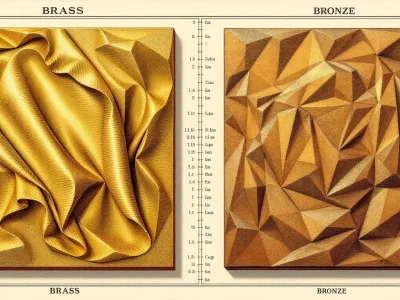
When deciding between brass vs bronze for a project, understanding their key differences is essential. Despite both being copper-based alloys, brass and bronze have distinct compositions and properties that make them suitable for different applications. This article will break down the composition, physical properties, mechanical properties, corrosion resistance, and common uses of brass vs bronze to help you make an informed choice. Key Takeaways Brass and bronze are distinct copper-based alloys, with brass being primarily composed of copper and zinc, while bronze consists mainly of copper and tin, leading to differing physical and mechanical properties. Brass is more malleable and…
Want to convert your CAD design into a sample prototype or small-batch production? Upload your files and get a fast and accurate quote.
